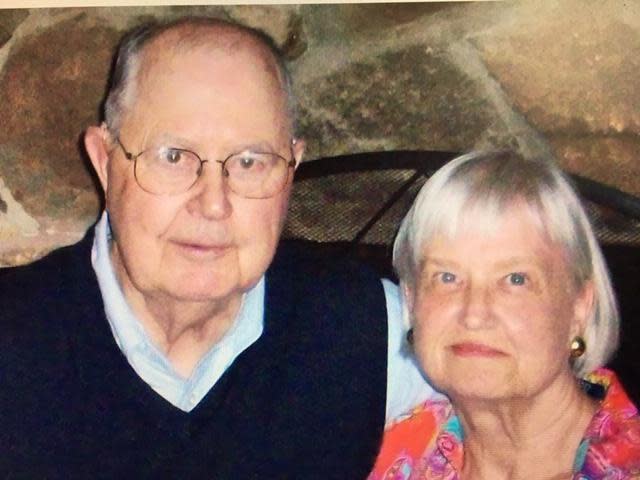Shellys commentary: Even in divisive politics, everything is about problem-solving
Problem-solving is as much a part of who we are as breathing, eating or sleeping. It can be defined as “the process of finding solutions to difficult or complex issues.” The very best problem-solving techniques ask that we be “methodical and not jump to conclusions, take our time, and approach the process in a clear, rational mindset.”
Even in the current, divisive world of politics, everything is about problem-solving-how we govern, select political candidates, and how we vote. Problem-solving is messy and hard, because everyone is not on the same page. Self-interest is always the great temptation. The process is complex and complicated because it involves bureaucracy - rules, staffers, legislators and two political parties. Recently, we faced a problem-solving deadline on the debt ceiling. The situation was urgent, for default was not a realistic option for either the Speaker or the President. The end result will never be to everyone’s liking, but that is how problem-solving works, no matter the issue. Most of the time, there is no drama, but even when there is, the give and take of bipartisan problem-solving is the ultimate objective.

Problem-solving can be taught and learned. Brainstorming, critical thinking, and the scientific method are several methodologies or it can also be an informal process. Some people are good problem-solvers, while others, not so much. Even the best of methodologies can run into trouble. For example, in our present political climate, critical thinking has been perverted by introducing the illogical and dangerous assumptions of Critical Race Theory. During the pandemic, the scientific method was vilified, when the expertise of scientists was rejected. Even with brainstorming, “group think” may simply reinforce the status quo. Whatever approach is used, patience, an open mind, and persistence are essential.
We assume that our legislators understand the constitutional requirements of governing and problemsolving. Sometimes we are angry at their ineptitude at getting things done. We want to believe that they know there are critical, personal components necessary to governing: civility, character, respect, knowledge, listening skills, vision, and compromise. The thing is, there are those who seem to have never understood or else have forgotten those essential elements. Today’s problems are overwhelming, complex, divisive, and compromised by self-interest. It is no wonder that problem-solving has often been derailed by ignorance or by factions with extreme demands. That means we all must expect more from our representatives, while at the same time, support those doing their job well.
The public is increasingly aware of how important the selection and election of candidates is to the ability to engage in good problem-solving. We will soon face primary elections in this country. It is a fact that if each political party puts forth qualified candidates, not fringe candidates, the country will benefit, because voters will be more confident of their choices. Voters rely on the party to do that, for not all candidates are equally qualified in ability, temperament, and knowledge. As candidates are filtered out and move toward the general election, voters need to put each candidate under a microscope: Is the person of good character, knowledgeable, a good communicator, a good listener, empathetic? Can this person work well with others, articulate why they are running, and lift people up? Does the person have an open and curious mind, as well as a seriousness of purpose? That type of person will be a good problem-solver. The voters also need to do some self-analysis: Will they do their homework, be prepared to participate by voting, hold candidates accountable for their words and actions, and be a model for good citizenship? Voters are essential, for they select the future problem-solvers.
No one can be excused - legislators, candidates, or voters. Successful problem-solving in the political arena depends on each individual involved. We have to get past blaming each other, having all the answers, being short-sighted, being ignorant or complacent. Each of these behaviors or characteristics is an anathema to problem-solving. Robert Litan of the Brookings Institute wrote that “Americans are good problem-solvers,” but we know that all too often, some elected political problem-solvers fall far short, which is why voting is so important.
Because problem-solving rests on the character of all involved, it is imperative that we dig deep within ourselves to find our “better angels.” The future of our society depends on our ability to do this. We are, after all, a democracy, not an authoritarian state, where the individual has no role in problemsolving. We, as Americans, have privileges, a voice, rights and freedoms, all of which are gifts not to be wasted.
Walter Shelly retired after 40 years as a professor of political science at West Texas A&M University. Linda Shelly retired after 33 years of teaching sociology at West Texas A&M University and Amarillo College.
This article originally appeared on Amarillo Globe-News: Shellys commentary: How to solve problems, even in divisive politics

